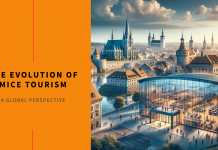Thailand, renowned for its vibrant culture, stunning landscapes, and world-class hospitality, remains a top destination in Southeast Asia. From the bustling energy of Bangkok to the idyllic beaches of Phuket and the cultural treasures of Chiang Mai, Thailand offers a diverse range of experiences that cater to both leisure travelers and business professionals.
As Thailand continues to attract global travelers and event organizers, recent political changes introduce new dynamics to its landscape.
On August 18, Prime Minister Narendra Modi extended his congratulations to Thailand’s newly elected Prime Minister Paetongtarn Shinawatra, marking a significant moment in Thailand’s political landscape. Her election, which occurred two days prior, follows a series of political maneuvers and reflects the ongoing evolution of the country’s leadership.
Paetongtarn, who becomes Thailand’s youngest-ever prime minister, assumes office more than a year after her centre-right Pheu Thai party secured second place in the general elections. Although the progressive Move Forward Party (MFP) initially led with the most seats, a political arrangement facilitated by her father, former Prime Minister Thaksin Shinawatra, resulted in a Pheu Thai-led coalition coming to power.
Thaksin Shinawatra, who was previously ousted in a military coup, has made a dramatic return to the spotlight. The recent political developments include the ousting of Pheu Thai leader Srettha Thavisin by the constitutional court on August 14, which cited breaches of ethical standards. Paetongtarn’s ascension marks the third time a member of the Shinawatra family has led the country, following her father and her sister Yingluck, who was also removed from power in a coup.
The stability of the country’s political environment is a crucial factor for international travelers and event organizers. The leadership change could influence Thailand’s appeal as a destination for business and leisure, potentially affecting tourism flows and event planning. Paetongtarn’s tenure might encourage new investment opportunities and innovations within the sector, potentially elevating Thailand’s status as a prime destination for international events and conferences.
Thailand’s economic performance is another critical area of focus. The country has experienced modest economic growth, averaging 1% to 4% annually since the 2014 coup, compared to around 5% growth for Southeast Asia as a whole. While past growth was driven by cheap labor and infrastructure investments, there is a pressing need to boost industrial development to keep pace with neighboring economies like Vietnam.











